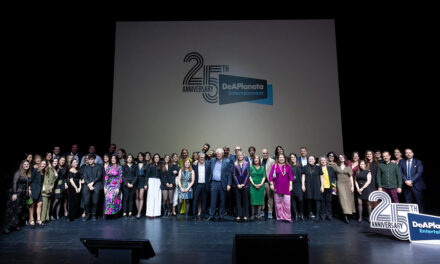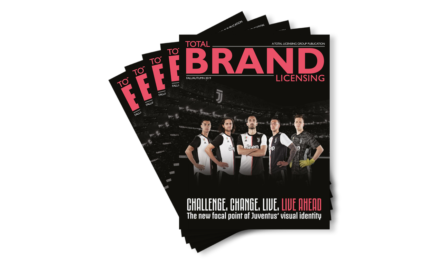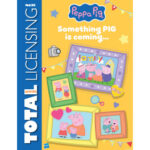
Raising Gen Alpha: How Millennial Parenting is Impacting the Next Generation

by Helenor Gilmour, Director of Insight and Strategy, at kids and family insight consultancy Beano Brain
The Millennials – that oft-derided generation – are now mums and dads and have ripped up the parenting rulebook.
Over the last year we have conducted a research study which found that Millennial parents, now aged from 27 – 40, are raising their Gen Alpha kids (born since 2010) very differently from the style of their own Generation X parents.
This has major implications for brands looking to earn trusted status – and longevity – within the lives of families and young people.
Insights into what the new parenting style means for brands can be found in our landmark white paper Raising Gen Alpha: How Millennial Parenting is Impacting the Next Generation based on more than 200-hours of face-to-face interviews and a survey of 2,000 parents using our proprietary Beano Brain insight tools.
What is abundantly clear from the research is that Millennials are stepping into the role of parents with the planning, purpose and professionalism that they might apply to their next career move.
There is a generational shift in parenting ethos from “do as I do” to “fix what we did”. And there is also an overarching desire to be omnipresent in their children’s lives – there for the small stuff as well as the life events.
This means that Millennial mums are choosing to step away or de-prioritise careers in favour of full-time parenthood. Not for them the juggling, “you can have it all” narrative of the Gen X mum. And we use “mum” advisedly here because although Millennial dads are more emotionally present than previous generations they are still as physically absent.
Encouraged to participate in family life as stakeholders and opinion formers, Gen Alpha have huge influence on not just family purchases but also on the entire family ethos. Not only are parents today much more open to what their kids say when it comes to toys, tech and content but a large majority are being influenced by them to make better decisions for the planet.
However, this laser focus and determination to be the best parent is bringing with it unique pressures. Millennials are really the first generation to raise their children in the full glare and judgement of social media. And there is an overwhelming feeling of parenting under pressure, subject to the scrutiny of others in real life or by comparison on social media.
Diving into the data, we found that Millennial parents are professionally parenting like no other generation before them. From planning the route to parenthood to actively selecting the parenting style they want to adopt.
69% of Millennials waited until they were married or living with their partner before having children and 34% of Millennial parents actively planned and researched when would be best to have children, compared to only a quarter of Gen X parents.
47% of Millennial parents have read up and selected a parenting style vs 37% of Gen X – this is especially important for Millennial Dads (54%).
The Goldfish Bowl:
Millennials are more likely to seek out advice online than Gen X parents, but this brings new levels of pressure, with 42% of Millennial parents feeling under pressure to keep up with their peers while only 26% of Gen X parents state the same.
Millennial parents feel the effects of influencers, with 45% stating that celebrity influencers “make them feel bad”.
Having grown up in a social media goldfish bowl, these digital natives are more digitally nervous for their own children with 75% of Millennial parents trying to keep their children off social media for as long as possible. And 35% of Millennial parents believe that a child’s digital footprint should be erased once they turn 18 – rising to 45% of Millennial Dads.
Being Present:
As Millennial parents reflect on missed moments and conversations that took place in their own childhood homes, they are eager to ensure they are present in all areas of their child’s life at any given moment – 77% of parents are prioritising time with the children over careers.
Millennial mums, rather than dads (59% vs 49%), are more likely to be putting their career on hold or giving less attention to work to focus on raising children. 62% of Millennial dads say they share parenting duties equally with their partner but only 43% of Millennial mums say the same.
The Millennial dad is more emotionally present than ever but is yet to improve physical presence. In fact, Millennial dads are no more likely than Gen X dads to actually prioritise time with their children over their careers.
Schools Out:
Millennial parents are increasingly pushing back against formalised education and there’s a growing belief that traditional routes into careers and, indeed, life are no longer the only way to raise modern adults.
57% of Millennial parents believe that schools are not preparing children to be citizens of the future compared to 47% Gen X. Some 8% of Millennial parents are home schooling and 36% would consider it. Only 12% of Millennial parents say they want their child to attend university (38% of the 18-year-old UK population is currently at university).
Freedom Lost:
65% of Millennial parents feel that their children don’t have the freedom to roam as they did as a child and 55% fear the negative influences of social media.
Happiness as a Career Goal:
81% of Millennials think it’s more important to be happy than to be “successful”.
45% of Millennial mums believe that being mentally healthy is important versus just 31% of dads.
Raising Saviours:
Parents are acknowledging that theirs, and previous generations, have contributed to the global problems and so they give their full support to their Gen Alpha children who are standing up and speaking out for what they believe in.
53% of Millennial parents believe that this generation will help solve the problems caused by previous generations. This theme is rooted firmly in parents’ fears for the planet and the world their children are inheriting.
What this means for brands:
This desire to be present and their democratic approach to parenting means that Millennials are enjoying a super close relationship with their Gen Alpha offspring. Their individuality is celebrated by their parents, meaning that Millennial parents are more likely to encourage their children to stand up for their beliefs.
Frustrated by authority, they are pushing against the traditional symbols of success and authority and prioritising happiness and fulfilment for themselves and their children. And they will abandon systems, structures, and authorities they don’t agree with or respect, and simply find their own way.
The challenge for brands and authorities is how to respond to this focus on individuality. How do you cater for mass individualism and how do you respond to a generation that may see you as part of the problem?
The shift in what parents want most for their kids is undeniable and continuing to change.
Raising Gen Alpha has revealed a new era of parenting rituals which will determine which brands Millennial parents will engage with and turn to for help. This affects everything from workplace parental policies to parents seeking out products with mental health benefits.
For brands there is a huge opportunity space linked to Millennial parents’ emphasis on their children’s happiness and mental health and the strong desire for their kids to spend more time outdoors playing and exploring independently.
This is potentially a huge innovation area for creative and experiential designers and for products that lend themselves to cross-family enjoyment.
Parents want brands to help them help their children be citizens of the future but shouldn’t forget to be playful and fun with a renewed focus on happiness as an end goal.
The report is on sale now, a mini version of the report can be downloaded for free at beanobrain.com
Notes:
Raising Gen Alpha: How Millennial Parenting Is Impacting The Next Generation is the latest in-depth study by kids and family insight company Beano Brain and follows the Getting to Know Gen Alpha Report of 2019.
Research Methodology:
· Face-to-face in-depth interviews with 30 parents and expectant parents of Gen Alpha (kids aged 0–12) from across the UK and US
· Longitudinal research with over 200 hours of face-to-face interviews throughout 2022 with our Trendspotter panels (kids aged 7 – 16) in the UK and US
· Quantitative research surveying 2,000 parents of Gen A in the UK and US
About Beano Brain
Beano Brain is the insights consultancy from Beano Studios which understands the tastes, demands and growing purchase power of kids and teens. It uses its unparalleled knowledge, born from decades of engaging kids and families, to help companies build their own connections with Gen Alpha, Gen Z and their Millennial parents.
About Beano Studios
Beano Studios is a rebellious multi-media publishing and creative entertainment business powered by data and insight. The Studio produces diverse content across TV and the award-winning Beano.com – as well as theatrical and live experiences, licensed products and of course the legendary Beano comic and annual.
















